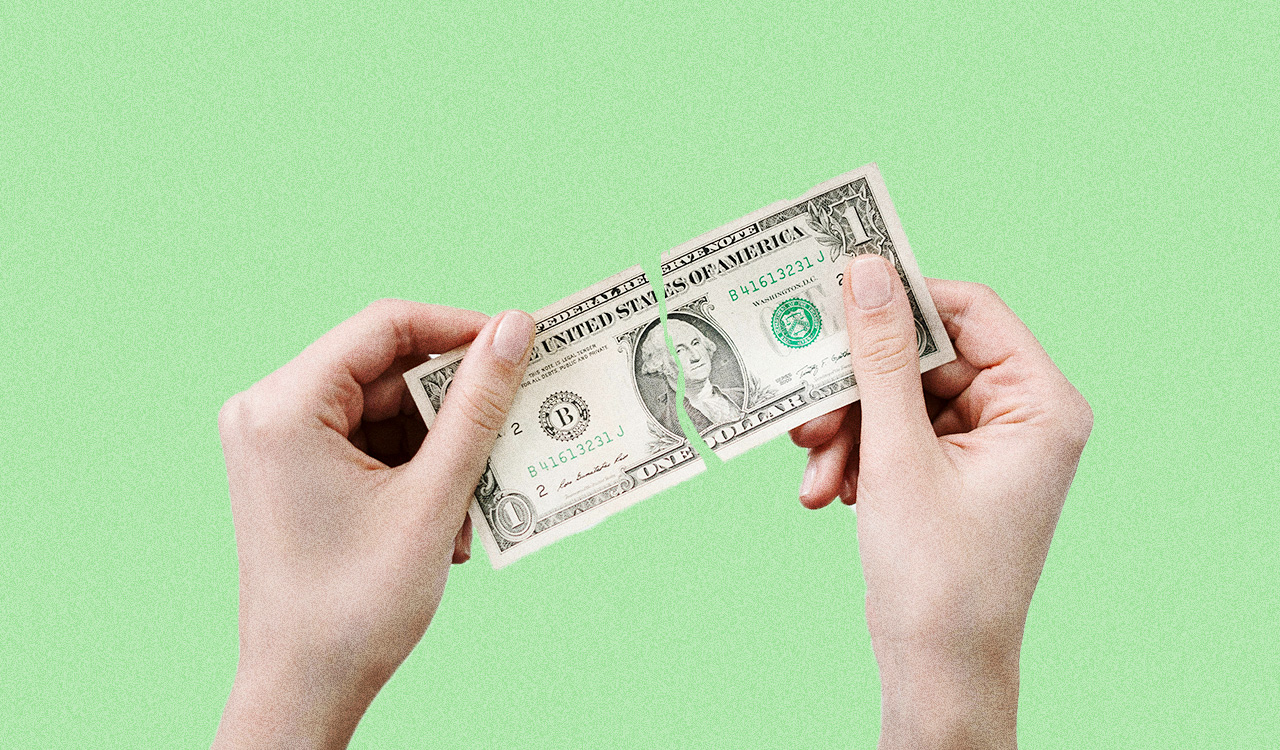Purpose-driven retail is more than just a buzzword… it’s the new standard. Contrary to popular belief, purpose-driven retail and conscious capitalism are not the same thing. Conscious capitalism works to elevate humanity through every component of a business, while purpose-driven retail refers to a retail business built around an altruistic central purpose or core motivation.
Have you heard the slogan “your vibe attracts you tribe?” The retail version would be, “Your purpose attracts your customers.” This isn’t theoretical: nearly eight-in-10 (79 percent) of Americans say they feel a deeper personal connection to companies with values similar to their own.
[callout]While 86 percent of companies say purpose is important to their business strategy, only 24 percent say they embed purpose in their business to the point of influencing innovation, operations, and their engagement with society.[/callout]
However, just because company leaders recognize the importance of having a central dictum doesn’t mean they’ve taken the necessary steps to integrate their purpose into every branch of their business. The Carol Cone on Purpose, ANA and The Harris Poll’s 2020 B2B Purpose Paradox found that, while 86 percent of companies say purpose is important to their business strategy, only 24 percent say they “embed purpose in their business to the point of influencing innovation, operations, and their engagement with society.”
Let it be said, though, that it’s better for your business not to tout a central purpose than to loudly proclaim one that you can’t back up with action. Some businesses are doing better than others in this regard. Let’s take a look at a few selected examples of purpose-driven retail in 2021 that are off most people’s radar and then review a few cautionary tales that prove walking your talk is more important than ever.
The Good
- Seventh Generation Gives It Away
Seventh Generation, the largest eco-friendly cleaning product company in the U.S., proved that it was a purpose-driven brand that walked the talk during the Covid-19 pandemic. The certified B-Corp demonstrated the company’s mantra that “you can’t live a healthy life on a sick planet” by taking swift action in service of the company’s Vermont community and the nation at large.
In a time when it felt like many brands abandoned their customers, Seventh Generation partnered with the Vermont Foodbank to donate $1.2 million worth of products to areas across the nation that needed them the most. The brand also donated $100,000 to COVID-19 United Response Fund and Vermont COVID-19 Response Fund.
- West Elm’s 15 Percent
Home goods retailer West Elm took a different approach. During the Black Lives Matter protests last summer, West Elm signed the 15 percent pledge, committing at least 15 percent of shelf space to brands from Black-owned businesses. West Elm also committed to hiring 15 percent Black executives at a corporate level, and urged other major retailers to do the same. And on top of all of this, the home furnishings retailer committed to donating a significant amount to the 15 Percent Pledge over the course of multiple years.
Here we see a major brand that isn’t afraid to make a commitment on a divisive issue and take action on it during a tumultuous time. West Elm’s actions differentiate it from brands that got bogged down in controversy, or those that created hollow support posts on social media that aren’t reflected in the business itself. The commitment, swift action and follow-through West Elm demonstrated serves as an example for retailers across the gamut that are looking to take action on social issues.
The Bad
- Luxury Price Hikes
Despite the fact that almost half of luxury consumers expected brands to offer discounts post-pandemic, a shocking number of luxury houses took the opposite approach. These aren’t niche or cult luxury brands that risked going under when Covid affected their revenue. Stakeholders at Vuitton, Chanel, and Gucci proved that they weren’t willing to give up a single cent when the rest of the world was hit hard financially during lockdown.
While bra retailer ThirdLove reduced prices to protect customers; Vuitton, Chanel and Gucci opted to raise their prices to protect their bottom line. Almost half (47 percent) of customers surveyed by Cotton Incorporated say they’re less loyal to brands than they were a few of years ago. So, while hiking prices may have protected short term stakeholder interests, which move do you think will be more effective for customer retention over time?
- Virgil Abloh Screenshots a $50
When Virgil Abloh signed with Louis Vuitton as menswear artistic director, he made history as one of the first Black designers to lead a French luxury house. He was considered a pioneer in his field and hailed as an inspiration to young people of color. Because of this, he had much further to fall as the result of his actions during last year’s Black Lives Matter protests.
Like many of the fashion and political elite who lose their throne, Abloh’s descent began on social media –– Twitter, specifically. After the death of George Floyd and resulting protests, Abloh began posting photos of broken shop windows and making statements that the carnage from the protests were the reason, “streetwear is dead.” For contrast, compare Abloh’s statements to those made by Marc Jacobs himself, or those by Brian Cornell, the CEO of Target, after their businesses were vandalized.
Quite a few people denounced Abloh’s anti-protester messaging. But then, the situation went from “debatable” to “laughable” when he posted a screenshot of his $50 donation to an organization called Fempower to help with the legal expenses of arrested protesters. While a $50 donation may be a significant amount for some people, it feels pretty cringey coming from someone like Abloh, who sells $590+ hoodies for his Off-White line.
The Ugly
- Apparel Brands Discreetly Cut Employee Hours
Although a brand’s purpose starts with the CEO, it needs to be reflected in all branches of the company. How companies treat employees defines how consumers perceive that company’s CSR (corporate social responsibility). But, in the age of callout culture, the worst thing a brand can do is toot its own horn and then take contrary action.
Anthropologie, Ann Taylor, American Eagle were heralded for releasing statements saying they’d continue to pay employees during pandemic-related shutdowns. Everything looked great for these retailers…until employees began to speak out on social media. It turns out the brands cut employee shifts before store closures, so employees weren’t actually being paid during the pandemic.
As one Ann Taylor store manager told Buzzfeed, “People who shop there were texting me saying they were so happy Ann Taylor was paying associates, and I had to tell them they actually weren’t.”
- Amazon’s Devastating Employee Culture
Amazon has created new retail standards that make it hard for small business owners to compete. Jessie Gould, Founder and CEO of plant-based food delivery service, Ox Verte, says the expectation of free shipping that Amazon has perpetuated is devastating for businesses like B-corps that want to treat employees ethically. Running employees to the ground and putting small retailers out of business isn’t a good look for any ecommerce marketplace. But the picture of employee culture at Amazon gets much, much grimmer.
Wisconsin Democrat Mark Pocan’s called Amazon out about claims that employees were working such crazy schedules that they were forced to urinate (and defecate) in water bottles on the road. Amazon’s official Twitter account responded, “You don’t really believe the peeing in bottles thing, do you? If that were true, nobody would work for us.”
In response, Amazon employees and Twitter users flooded Amazon’s pages with empirical evidence of delivery drivers doing exactly that. It really makes you think about where your AmazonSmile order has been, hasn’t it?
The Answer? B Corps and Microbrands
So, what will purpose-driven look like post-Covid? Young consumers will continue to call the shots for social awareness in our institutions and businesses. As a result, outside of legacy retail, we may see more certified B-corps and ecommerce native micro-retailers emerge. The number of certified B Corp companies has tripled in five years to 3500 and continues to grow. The strict standards for a company to become and retain B Corp certification gives consumers a level of trust about the impact of their purchase that they just can’t get from a company press release.
As for traditional retail, consumers and employees may make purpose-driven business principles the norm. For example, Tractor Supply Company is a great example of making purpose a foundational differentiator and road to success. More and more businesses will get the message from next-gen consumers to live by social values that benefit all stakeholders.
My hope is that B Corp certification will become the new gold standard for retailers, as consumers continue to reject hollow marketing messages that make a brand inauthentic and disingenuous.




